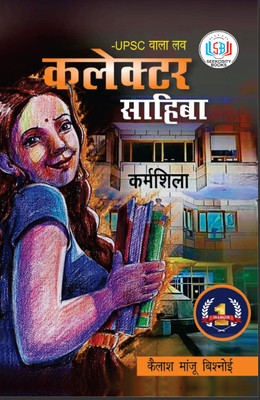
Palegars Of South India (Forms And Contents Of Their Resistance In Ceded District) - Palegars of South India: Forms and Contents of their Resistance in Ceded Districts (Hardcover, Dr. J.C. Dua)
Price: Not Available
Currently Unavailable
Highlights
- Binding: Hardcover
- Publisher: Reliance Publishing House New Delhi
- Genre: Anthropology
- ISBN: 9788175100343, 8175100346
- Edition: First Edition, 1996
- Pages: 316
Description
This is a first full-length study of its kind dealing with an important politico-economic institution of medieval South India, the Palegars, and the nature of their resistance against the English during the first half of the nineteenth century. An attempt has been made to draw parallels between the different categories of the zamindars of the Mughal empire and the Palegars right from their origin to the ultimate shape both had been able to attain In the quest of a higher status both came into conflict with their superiors or the state. The detailed tables would certainly provide a deeper acquaintance with their evolution.
Despite concentrating on the region, popularly known during the British period as the 'Ceded Districts', the study is bound to provide a crucial insight into the ongoing controversy over the forms and contents of the Palegar resistance-whether it was 'political", 'social banditry', 'The first war of independence, a socio-economic resistance', 'a resistance movement', etc. Without idealising the reality it analyses the palegar resistance during the period under study-while dividing it into two distinct phases-1800-1807 and 1846-47. While examining the earlier phase the author has clearly made his case that the palegars aimed at seeking greater share in the power over, and thus in the revenue of, their region. However, as their interests were invariably narrow and parochial, they could not effectively incorporate the interests of their fellow palegars. The support that they got from peasants, smaller palegars and local officials was forthcoming invariably because of fear or for promoting individual interests.
The latter phase, the author stresses, was clearly the result of active steps taken by the English towards the transformation of Indian society and culture. This phase of resistance was first of its type against the English policy towards, one of the most sensitive and traditionally adorable institution, the in am lands. The author maintains that in any case it was not for getting freedom but to force the government to take corrective measures.
Based on hitherto untapped as well as already known sources, the study, in addition to giving a fresh focus on the subject, shall greatly supplement earlier studies.
Read More
Specifications
Book Details
| Publication Year |
|
| Edition Type |
|
| Book Type |
|
| Table of Contents |
|
Contributors
| Author Info |
|
University Books Details
| Stream |
|
| Specialization |
|
| Subject |
|
Additional Features
| Age Group |
|
Dimensions
| Width |
|
| Height |
|
| Depth |
|
| Weight |
|
In The Box
|
Be the first to ask about this product
Safe and Secure Payments.Easy returns.100% Authentic products.
Back to top




